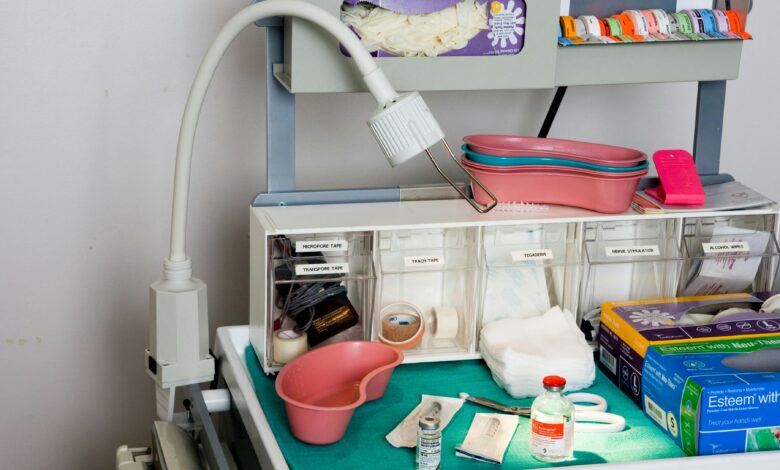
Surgical tools play a critical role in ensuring successful medical procedures, and the right selection can greatly impact patient outcomes. There are two main categories of surgical instruments: general and specialized. Understanding the differences between these types of tools helps medical professionals choose the right instruments for each procedure, balancing efficiency and precision. In this blog, we’ll explore what sets general and specialized surgical tools apart and when to use each type.
Definition of General Surgical Tools
General surgical tools are versatile instruments that can be used in a variety of medical procedures. These tools include scalpels, forceps, scissors, and clamps—basic instruments that are staples in operating rooms around the world. General tools are not limited to one specific type of surgery; they can be applied to many types of procedures, ranging from minor operations to more complex surgeries.
The primary advantage of general surgical tools is their versatility. They are essential in almost every surgery and are readily available, making them indispensable in both small clinics and large hospitals. Their widespread use also makes them more cost-effective and easier to maintain compared to more specialized instruments.
Definition of Specialized Surgical Tools
Specialized surgical tools, on the other hand, are designed for specific types of procedures or medical fields. These include instruments like orthopedic drills, laparoscopic instruments, or neurosurgical scissors. These tools are tailored to the precise needs of a particular surgical task, ensuring better outcomes for more complex and delicate procedures.
Specialized surgical tools offer greater precision and control than general tools. They allow surgeons to perform intricate tasks with minimal damage to surrounding tissues, which is crucial in fields like neurosurgery, heart surgery, and minimally invasive surgeries. The customization of these tools for specific tasks improves both accuracy and patient safety.
Key Differences Between General and Specialized Tools
The main difference between general and specialized surgical tools lies in their purpose and functionality. General tools are designed to perform a broad range of tasks, while specialized tools are created for precise actions in specific procedures.
Versatility vs. Specificity: General tools can be used in almost any surgery, making them more flexible, while specialized tools are limited to certain types of surgeries, focusing on precision for a particular task.
Cost and Maintenance: General tools are usually more affordable and easier to maintain since they are mass-produced and used in a variety of procedures. Specialized tools, however, tend to be more expensive due to their precision design and the specific functions they serve.
Training Requirements: General surgical tools are familiar to most surgeons, requiring minimal specialized training. However, the use of specialized instruments often requires specific expertise and additional training, ensuring the surgeon can use them correctly and safely during complex procedures.
When to Use General Surgical Tools
General surgical tools are essential in most routine medical procedures. These instruments are sufficient for minor surgeries or common operations, such as appendectomies, hernia repairs, or wound closures. For example, a basic scalpel or pair of forceps can be used in almost any surgery for cutting and grasping tissue.
Because of their wide application, general tools are ideal for handling tasks that don’t require the high precision offered by specialized tools. In cases where the surgery is not overly complex, general instruments can be sufficient to achieve successful outcomes while being cost-effective and easy to handle.
When Specialized Surgical Tools Are Essential
There are certain procedures where specialized surgical tools are not just helpful but essential. For example, in neurosurgery, specialized scissors and forceps are required to handle delicate tissues and nerves. In orthopedic surgeries, specialized drills and saws are used to cut and reshape bones.
These tools offer the level of precision and accuracy needed for high-stakes surgeries where the margin for error is very small. Specialized instruments reduce the risk of complications and improve patient outcomes by allowing surgeons to perform complex tasks more safely and effectively.
Advantages and Disadvantages of Each
Advantages of General Tools:
- Affordable and widely available
- Easy to use and maintain
- Suitable for a broad range of procedures
Disadvantages of General Tools:
- Lack of precision in more complex or delicate surgeries
- May not meet the specific needs of specialized procedures
Advantages of Specialized Tools:
- High precision for specific surgical tasks
- Improves safety and outcomes in complex procedures
- Designed to minimize damage to surrounding tissues
Disadvantages of Specialized Tools:
- More expensive than general tools
- Requires specific training to use effectively
- Limited to certain types of surgeries
Conclusion
Choosing the right surgical tools from surgical website —whether general or specialized—is crucial for ensuring the success of any medical procedure. General tools are versatile, cost-effective, and essential for routine surgeries, while specialized tools offer the precision needed for complex and delicate operations. Understanding the differences between these two types of instruments allows medical professionals to make informed decisions that ultimately lead to better patient outcomes. By carefully selecting the appropriate tools for each procedure, surgeons can improve both efficiency and the quality of care they provide.




